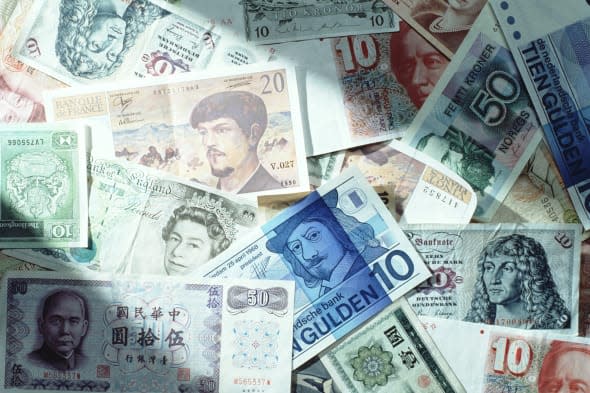How to send money abroad

If your family and friends are spread far and wide, sending money abroad can sometimes be preferable to posting a big, expensive gift. There are, however, charges and exchange rates to consider, so if you're planning to send funds overseas, here's what you need to know.
Related Searches
What are the costs?
The firms that allow you to transfer money abroad make their profits in two ways - via a fee or charge for the service, sometimes applied to both sender and recipient, and the exchange rate. Though some claim to be commission free, you'll probably find that a less favourable exchange rate means they're effectively still making their money.
Compare rates
Since exchange rates change by the minute, finding a good rate can be a tricky affair. However, a good place to start is Travel Money Maximiser, which, though it won't provide the service itself, will allow you to find a benchmark as to the cheapest provider. That way you can check to see how good a deal you're getting, and if you're transferring a sizeable amount of money, you should aim for as close to the cheapest rate as possible.
One-off payments
If you're sending a one-off smallish payment as a Christmas gift, for example, an online provider might prove the best option. A number of UK-based firms specialist in international money transfers, where you'll pay the company in sterling, and they will convert to the desired currency and send to the recipient's bank within two to four working days, although be prepared to wait a few days for your own account and address to be verified.
For a small transfer, try Transferwise, a peer-to-peer FX specialist, which allows you to transfer money with a fee as low as £1. It works by the sender paying into a pot that's held in the UK, then the recipient is paid out in their currency from reserves of currency held in other countries. It is limited to 20 currencies, including US, New Zealand and Australian dollars, euros, and Indian rupees. For a fee of just £1, you can transfer up to £200. Above that amount you'll pay 0.5% of the amount.
Fee-free bank transfers
Some banks allow you to transfer money for free, provided both recipient and sender hold an account with the same bank. If both have an HSBC account, for example, you can transfer money between accounts online at no cost, and if the recipient doesn't hold an account with the bank, you'll pay a charge of £4. However, do bear in mind that you might not get the best exchange rate, so it's worth checking other services to compare.
Citibank also has a fee-free transfer service where both hold a Citi account, although you'll need to have an average monthly balance of £2,000 or the equivalent in foreign currency, in order to avoid the £5 monthly fee.
For larger amounts
A specialist online transfer service is the best bet if you're sending larger quantities of cash. Currencies Direct will allow you send money fee free as long as you're sending more than £500, and is available in roughly 25 currencies. Similarly, FairFX won't charge for transfers of more than £600, although it's typically available in only 11 currencies. Travelex's International Payments service is only fee-free if you're transferring more than £2,500, but fees on smaller amounts aren't prohibitive - around £7 for amounts ranging from £300 to £2,500 - and it does offer a price promise that guarantees to beat a competitor's quote if you find a cheaper one within 30 minutes. With all of the above, you'll get a better rate the more you send.
%VIRTUAL-AFCSponserAds%
Whatever method you choose, it is wise to remember that your money may not be protected if the firm goes bust while it's holding your money. To ensure that your cash is 'ring fenced' or kept separate during the period between sending and receiving, it must be authorised by the Financial Conduct Authority, and not just 'registered'. To find out how your chosen provider is regulated, you can simply perform a search on the FCA's online register.
Do you regularly send money abroad to friends or family? What advice would you give to others? Leave your comments below...




